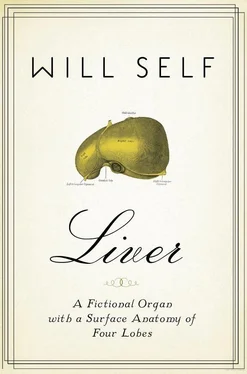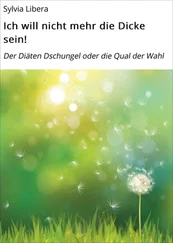Warming to his medium, Hrundi blew on the mic again, ‘pock-pock’, then announced: ‘Waiting for more num-nums. Num-nums is all gone!’
‘Bi-lly,’ chided Georgie, who knew all about his counter-life.
‘No, seriously,’ Billy said, ‘I’m not fucking handing these round, they can come and get ’em if they want ’em.’
Birdy num-num. Birdy num-num all gone — this was the key scene in The Party so far as Billy was concerned. The parrot had had his fill, yet still craved more. Much more. Billy came round from the kitchen and, one by one, checking who wanted sugar, handed out the teas. For specially favoured guests he also offered a milk chocolate HobNob.
Like an army chaplain giving extreme unction on a battlefield, Billy bent down low to present them with their sweetened solution, and while subservient he offered this pathetic intercession: when Andy came, he, Billy, would speak to the dealer on their behalf. Andy always disappeared into the master bedroom with Georgie, who’d taken their orders in advance. Then there would be a further long wait, as she negotiated her and Tony’s cut for concentrating the market, trapping the flies.
Billy, in return for a pinch of smack here, a crumb of crack there, offered to ensure that their orders would be filled priority, or else suggested other tiny services that he could perform: the feeding of meters, the obtaining of works, pipes and foil; perhaps even the making of calls to employers/wives/husbands/children to explain — in sincere, doctorly tones — the entirely legitimate reasons for so-and-so’s non-arrival. This marginal service sector paid only because of Billy’s preternatural ability to gauge the extent of his clients’ desperation, and so adjust his pricing accordingly.
They clutched his sleeve and murmured pitiably, ‘I was meant to be in Baker Street at half eleven’ or ‘My kid’s out in the car, go check she’sOK, willya?’ or ‘I gotta have a hit before I leave!’ And Billy would nod gravely, accepting downpayment for these indulgences; the pope of dope with his dirty chuckle of absolution: ‘Er-h’herr.’
‘Waiting for more num-num, num-num is all gone,’ Hrundi said to Billy; then Billy said it aloud. The coincidence between the hunger of the parrot in the cage at the party and the cold turkeys in the cage of addiction never ceased to amuse him — like a custard pie thrown in the face of the world.
And still Tony nagged for breath on the sofa, and still Georgie nellied in and out of the living room. ‘Ha-ha-ha — ’ he gasped.
‘What’s that, Ups-a-Boy?’
‘Ha-ha-ha — ’
‘What’re you saying, Noodly-Toots?’
‘Have you, have you —?’
‘Have I what, Noodly?’
‘Have you, have you ‘‘euch’’ called him?’
‘Oh, you know I have, Ups-a-Boy, just this second.’ So it was that they conformed to all the ordinary amnesia of the long-term married.
Every three minutes she would make the same forlorn calculation: their desperation factored against Andy’s irritation; but, whatever the result, she’d still bruise her fingers dialling.
Billy retreated once more to the kitchen. He opened a cupboard door and the band were all in there smoking a joint. ‘Shut the door, man.’ The sax player comically honked. Next, Billy found the control panel again, and dickered with its switches. At the party in The Party , the statue of the little boy peeing in the ersatz rill increased its flow all over Wyoming Bill Kelso; the fire burning on the circular hearth flared up; the bar where Clutterbuck and his cronies were standing retracted into the wall, scattering glasses with tinkly abandon.
Billy watched these dumb happenings delightedly, superimposing them on Tony Riley’s living room, so that it was Gary and Yami who were slammed against the mouldy wallpaper; Tony’s Dupont that threw flame at Bev’s face; and Jeremy’s mug from which the tea jetted.
What of us? Does it ever tire us — me — our swarming behind the sightless eyes of the junkies and the tarts? Do I remain as amused as Billy by the slapstick of addiction, the inability of these Buster Keatons to do even one thing properly at once? Well, yes and no. True, I never grow bored with my own imposture; each time I break into a cell, rip off a strand of DNA, patch it into my own RNA and so reproduce myself, I experience anew the thrill of creation.
Jean Cocteau — a junky, true enough, although before our time — said that all artists are, by nature, hermaphrodites, as the act of creation is one of self-insemination, followed by parthenogenesis. I — we — would concur with this, except that we are far more inventive: we mutate so quickly within the galleries of our patrons, simultaneously gifting them originals and multiples.
Then there’s time, the most significant dimension of creation. Size may matter, but time diminishes all things, bringing them down to our level. We — I — bide our time; we savour our own side effects, the minor symptoms of accidie and loss of appetite, the insomnia and the biliousness. Wearen’t one of those Grand Guignol maladies, half in love with its own horror show. We do not seek to liquidize tissue in seconds, then send blood spouting from every orifice; nor do we see any beauty in the gestural embellishments of the cancers — although, all in good time, we may bring on those cellular clowns. Consider the slapstick of cancer, its crazy capers, the way it messes up the metabolism, chucking buckets full of tumours about the body.
No, they call what we do disease, but we know it’s art; and the art of life is a process. This is what we do: we hang in there. We loiter — we don’t hurry, we take years — decades, perhaps. For us, human death is a failure; unless, that is, enough of us have blasted off to colonize new worlds.
They are mobilizing against us. Pegylated interferon alpha, Ribavirin — crass names, brutal mercenaries. They don’t even know how these drugs work, but let me tell you — it’s not pretty. Figuratively speaking, they cut off our balls and stitch up our cunts. Still, let’s not dwell on the future; for now, it’s still that Tuesday afternoon, in November 1998, and at Tony Riley’s there’re loads of us. Loads in Billy, Georgie and Tony himself. Loads in Bev and Jeremy, loads in Gary and Yami, loads in the screenwriter and his stylist girlfriend. And not forgetting the estate agent — there’re loads of us squatting in him, as well. An abundance of mes, two million in every millilitre of their blood — a whole earth’s population in one individual.
We bide our time. ‘It is good’, as Peter Sellers, as Hrundi V. Bakshi, said to Claudine Longet as Michele Monet, ‘to be having a good time.’
‘What the fuck’re you on about?’ said Tanya, the stylist.
‘I am saying to you’ — Billy waggled his head from side to side, his black locks swinging — ‘that it is good to be having a good time.’
After the encounter with the parrot, and the revelation of its empty dish, this was Billy’s second favourite moment in The Party . The girl, in her filmy, lemon-yellow mini-dress with the spangly bodice, was obviously meant for him — why else the soft focus, her slim yet shapely form, her air of sexualized neurosis, the ski jumps of her hair? Moreover, she was being harassed by her date, who was none other than Herb Ellis (as himself), the boorish director who threw Hrundi off the set out beyond Barstow, with the ringing cliché, ‘You’ll never make another movie in this town again!’
How many times had Billy heard that before. Still, here he was, looking deep into Tanya’s eyes — which were brimming with sickness — and they’d clicked, hadn’t they? ‘Lissen,’ Billy went on (as himself), ‘I’ve gotta bit of gear if you want, not much. ’ He glanced at David, but the screenwriter, unable to cope with his enfeebled conscience — it was his kid who was outside in the car — had dropped a Rohypnol.
Читать дальше












